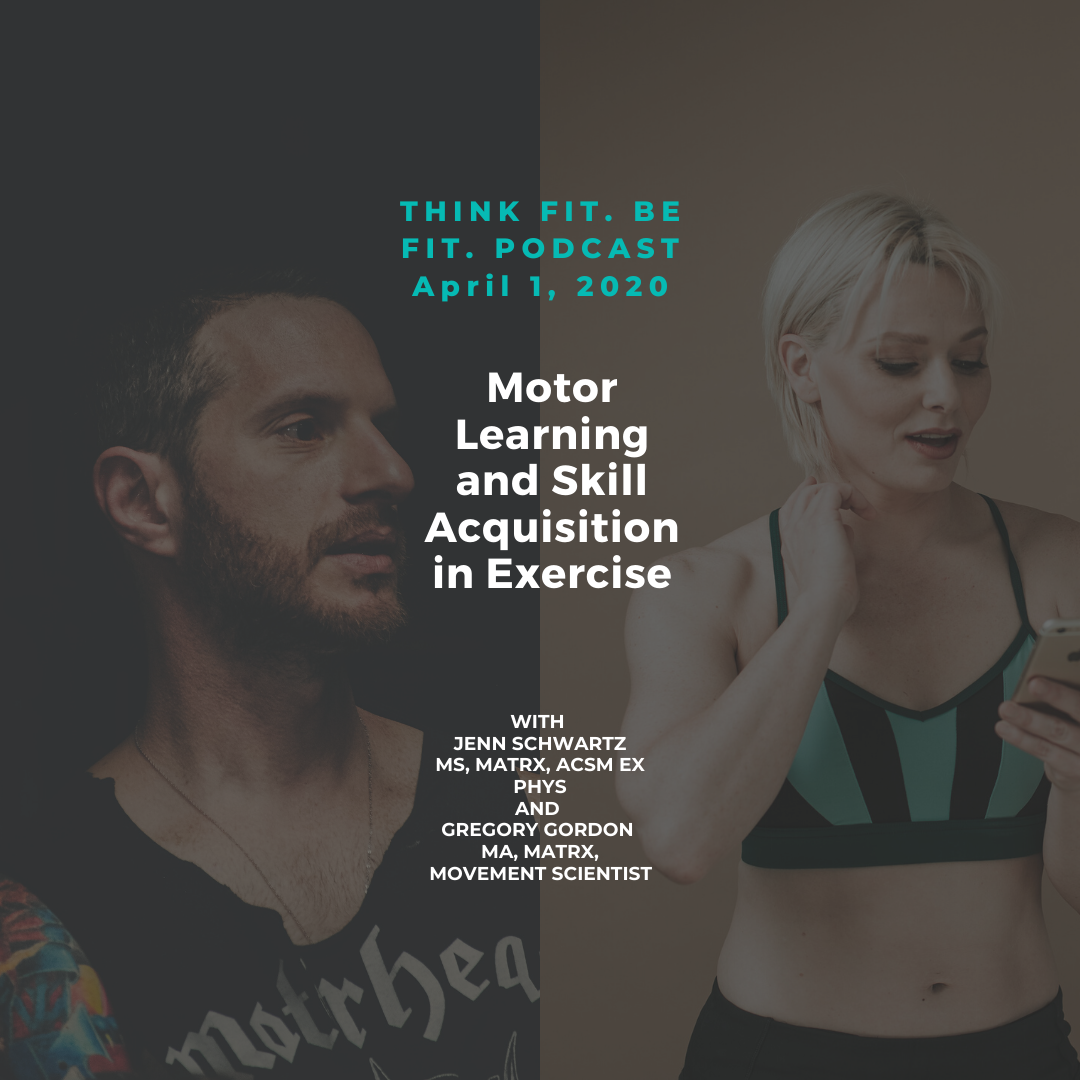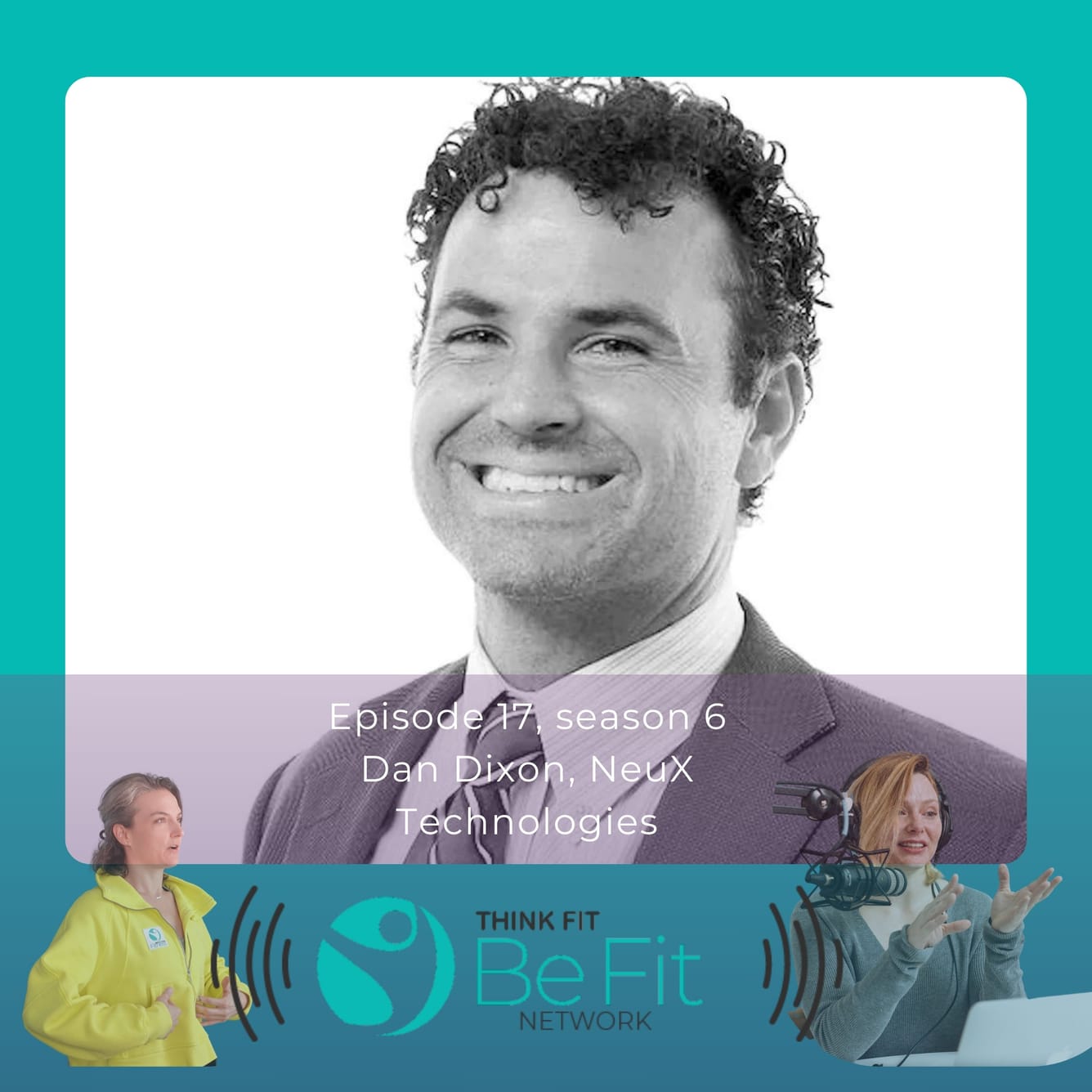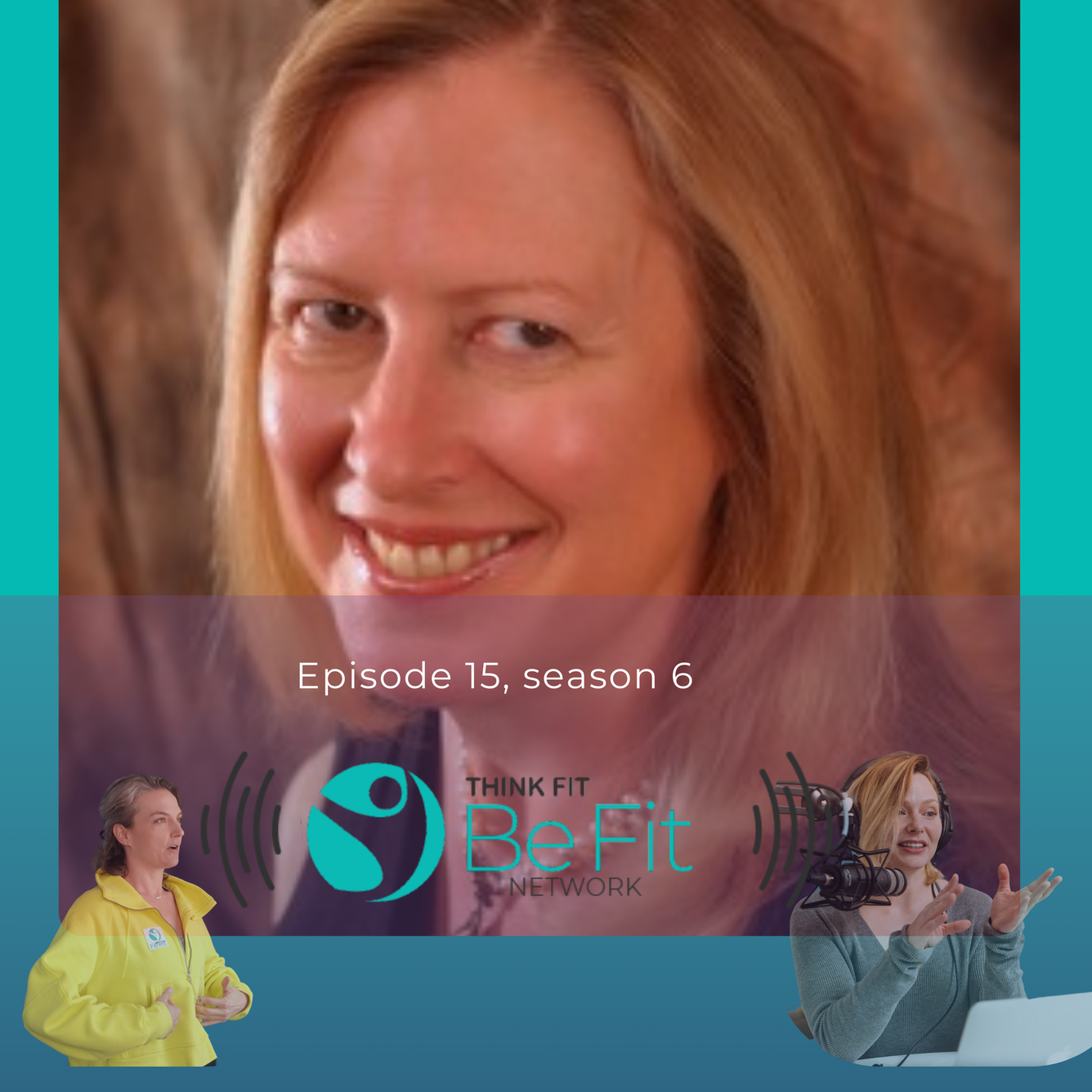Gregory Gordon: Motor Learning and Skill Acquisition in Exercise.

April 1, 2020
Consider this conversation a fun ride in learning and skill acquisition meets exercise and rethinking personal training.
This episode is a fun dive in to the inner workings of an intellectual connection to exercise. Jenn’s guest today is someone she calls a friend, mentor and colleague; Gregory Gordon MA of Exercise Intelligence. He is a movement scientist with a specialization in pain science and motor learning who practices MAT RX and customizes strength and conditioning programs. He has notable experiences in providing continuing education courses for Cybex International in neuroscience based content and received his Masters degree in Motor Learning and Control from Teachers College, Columbia University.
If you are a personal trainer, this episode will directly influence your view on the body and what is actually important when it comes to overall fitness from a brain and motor learning perspective.
If you are an exercise lover, this episode has information for programming your workouts for accessing all types of muscle fibers.
If you are in athletic coaching, you’ll love how this content explains that perfect practice is a waste of time.
There are so many concepts from the typical personal training manual that get blown out of the water in this episode! Please check out the links and references.
Topics that we covered:
- Rethinking personal training
- Exercise as skill development
- Phases of skill acquisition
- Essentialization in exercise: strategic weekly planning of accessing all motor units all while consistently working on all the body’s capabilities safely progress.
- Differences between motor learning and motor control and motor performance
- Power and velocity from the Motor Learning lens
- Muscle memory (implicit and explicit)
Links of interest:
Follow Gregoryhttps://www.instagram.com/exercise_intelligence/
https://www.exercise-intelligence.com/Chris Beardsley
https://shor.by/sandcresearchhttps:/
/www.instagram.com/chrisabeardsley/
Dr. Paul Jurishttps://bkbx.fit/meet-paul-juris/Columbia University, Motor Learning https://www.tc.columbia.edu/biobehavioral-sciences/movement-science-and-education/academics/motor-learning-and-control/
Gregory's white paper https://gallery.mailchimp.com/8b0f1b3d025e61aeadf46d7f7/files/e1ba461f-8af7-4497-8357-08a7e68aec5e/The_Path_of_the_Conscientious_Observer.pdf
References:
1)Power Training @ 30%
2)Great resource for basic Motor Learning and Control Concepts:Motor Learning and Control: Concepts and Applications
By: Magill, Richard A,Publisher: McGraw-Hill Higher Education
3)Paper on quads being harder to activate than other muscleshttps://www.ncbi.nlm.nih.gov/pubmed/11870692


